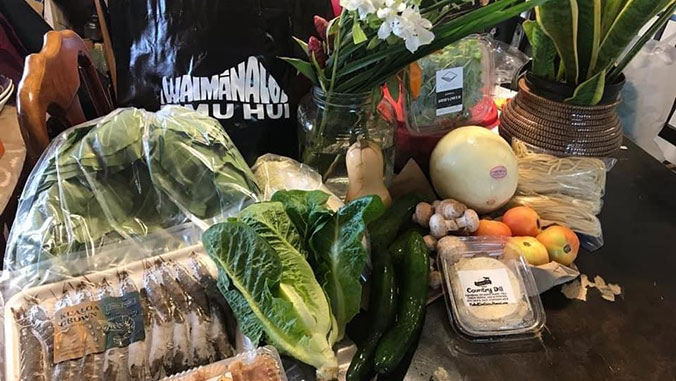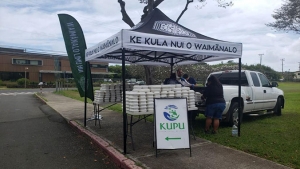
The COVID-19 pandemic has worsened many of the problems faced by Native Hawaiian communities, but in a new paper, public health researchers detail the numerous efforts of Native Hawaiian-led groups that show these communities' strength and resilience.
Since the start of the pandemic, Native Hawaiians and other Pacific Islanders have faced a higher risk of contracting COVID-19 than other groups in Hawaiʻi. They also endured high levels of unemployment and economic insecurity.
"This paper highlights the power of Native Hawaiian communities during these trying times," said Jane Chung-Do, senior author and associate professor with University of Hawaiʻi at Mānoa's Office of Public Health Studies within the Thompson School of Social Work & Public Health. The paper is published in the Journal of Indigenous Social Development.
Nonprofit efforts

The nonprofit group Ke Kula Nui O Waimānalo (KKNOW), whose aim is to promote health and support the self-sustainability of the Waimānalo community, has partnered with other nonprofits, businesses and governmental agencies to provide food for Waimānalo families. Since mid-March, the group has distributed 24,000 prepared meals and 3,550 boxes of fresh produce. KKNOW also delivered seeds and seedlings of traditional Hawaiian crops such as kalo (taro) and ʻuala (sweet potato) to families and community members who are vulnerable to food insecurity, economic instability and other social challenges.
"The goal of KKNOW is to build community resilience by helping fellow Native Hawaiians grow their own food before further disruptions strike," said Kirk Dietschman, president of Ke Kula Nui O Waimānalo and a co-author of the paper.
Other nonprofits have also pitched in. The meals were prepared by chefs and students in a culinary training program, coordinated by the nonprofit KUPU Hawaiʻi. Meal delivery was led by Aloha Harvest, and the Department of Hawaiian Home Lands and the Waimānalo Market Co-Op, which provided the sites for the daily food distribution.
"These efforts succeeded because these Native Hawaiian-led groups anticipated the needs of the community and leveraged existing resources and relationships to meet those needs," said Ilima Ho-Lastimosa, the lead author of the paper and a community coordinator at the Waimānalo Learning Center of the UH Mānoa College of Tropical Agriculture and Human Resources (CTAHR). "It is key that these organizations all have history with the community and have earned the trust of the members."
Producing long-lasting results
Historically, efforts to address health disparities have used western-centric methods and have often failed to produce long-lasting results among Indigenous peoples, the researchers wrote in their paper. They concluded that place-based, culturally-grounded interventions show promising results with Indigenous peoples and will be needed to restore the health of Native Hawaiians.
The co-authors on the paper also include LeShay Keliʻiholokai, Kaua Kassebeer, Hae Kassebeer, Joseph Awa Kamai, Ikaika Rogerson, Kenneth Ho Jr., Manahā Ho, Kamalei Ho, and Denise Kaʻaʻa, of Ke Kula Nui O Waimānalo; Alexxus Ho, of the Hawaiʻi Pacific University College of Health and Society, and Theodore Radovich of CTAHR.






